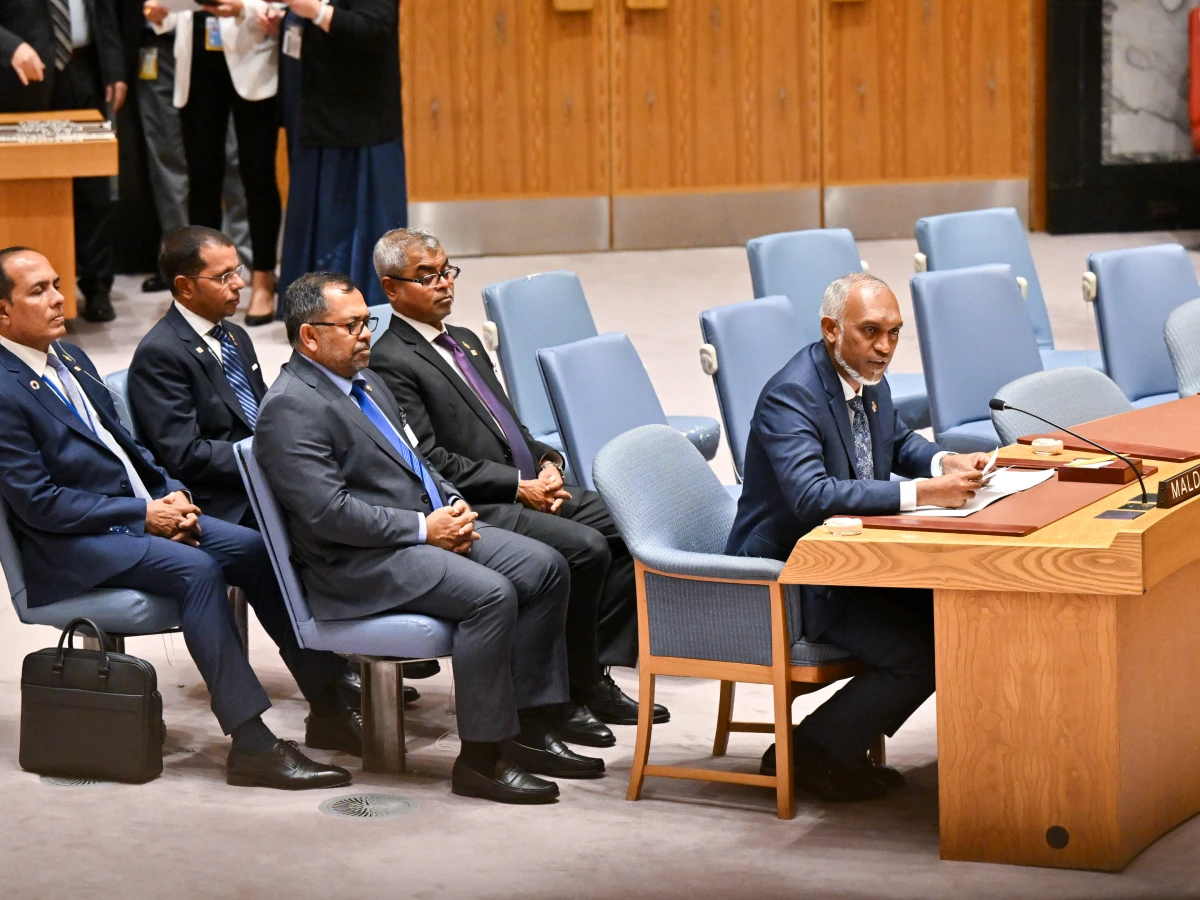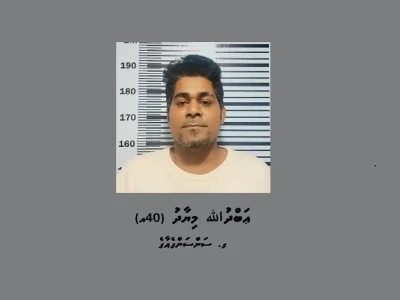
Abolish veto, Maldives president tells UN Security Council
The president’s address highlighted the urgency of reforming the security council to ensure it can effectively respond to the global challenges of today.
In a historic address to the United Nations Security Council, President Mohamed Muizzu on Wednesday called for significant reforms to the council's structure, calling for the abolition of the veto power held by its permanent members.
This marks the first time a Maldivian president has addressed the security council in the 59 years since the country became a UN member.
President Muizzu reminded the council of the immense responsibility it holds in maintaining global peace and security, while also addressing the growing global mistrust in the system, due to its ineffectiveness and inaction.
He added that the declining trust in the council is due to the lack of equal representation, accountability and transparency. He proposed a new intergovernmental process with text-based negotiations to drive reform efforts forward. In this regard, he reiterated the Maldives call for a permanent rotating seat for SIDS.
Speaking on the ongoing conflicts, President Muizzu emphasised on the "genocide unfolding under the nose of a Security Council unwilling to uphold international law."
The president described the veto power as a barrier to effective decision-making, adding that the veto paralysed the council from stopping Israel’s genocidal war in Palestine, allowed Israel to continue with impunity its brutal occupation, and enabled the massacre of innocent people.
Addressing these issues, the president proposed the establishment of a mechanism that allows for real-time, innovative solutions from the international community.
President Muizzu also shed light on the need to address the implications of non-traditional security threats, including the use of technology, urging the council to be more flexible, and listen to the people it serves.
He concluded by reminding the council of its foundational principles, stating that it was the member states of this Council who established a world order based on justice. That architecture is now disintegrating under the weight of bodies of civilians, aid workers, UN staff, and journalists, who represent the very essence of a civilised world.
The president’s address highlighted the urgency of reforming the UN Security Council to ensure it can effectively respond to the global challenges of today.
The president delivered his remarks at the United Nations Security Council High-level Open Debate on ‘Leadership for Peace: United in Respect of the UN Charter, in Search of a Secure Future’ held today at the UN Headquarters in New York.




